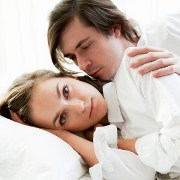A study published in a new issue of Fertility and Sterility links the use of the oral contraceptive to decreasing urinary incontinence among perimenopausal women.
The study, from Sweden, produced a web-based survey and interviewed nearly 11,000 women between the ages of 23 and 50 all from the population-based Swedish Twin Registry. The survey specifically focused on the relationship between oral contraceptive use and urinary incontinence and reports that birth control users found a "significantly reduced risk for symptoms of stress urinary incontinence, mixed urinary incontinence, and urgency urinary incontinence." This reduction could be seen even when considering factors such as age, BMI, or pregnancy history. Overactive bladder symptoms were also reduced but not significantly enough.
The LA Times reports that previous studies conducted on urinary incontinence have found that hormones worsened, not helped, the condition. This study suggests that younger women react differently to the exposure of hormones in the body.
Urinary incontinence affects older women most: 35% of men and women over the age of 60 have some kind of urinary incontinence, but women are twice as likely than men to experience the problem. One in three women who are 60 or older face some kind of bladder control issues. Various kinds of involuntary urination affect women: stress urinary incontinence is caused to a weakening of pelvic floor muscles, often arising as a result of pregnancy, menopause or childbirth. Damage to bladder nerves can also result in urinary incontinence, as can having prolonged difficulty accessing toilet facilities, kidney stones, or spinal damage.
Previous studies have shown that birth control pills prevent bacterial vaginosis, protect against pelvic inflammatory disease, and even affect one's choice of sexual partners! Although these new findings seem positive, and doctors may consider prescribing the birth control pill to younger women who have urinary incontinence, more research has to be done to link the two together. Hormones have a range of effects on the body and other factors can effect just how they change or modify individual women. Remember to speak with your doctor about all your concerns regarding oral contraceptives.



Add a Comment1 Comments
We had a lot of trouble with bladder stones with our Hannah, including an instances of acute retention which could have killed her, but a change of diet to a bland and natural one seem to solve the problem on a life long basis. Most vets seem to favour a change of diet.
For a description of Hannah's problems and details of a successful diet please see -
http://bladderstones.googlepages.com/hannah
If the link does not work then just copy and paste the address into the http:// address bar at the top of your screen.
August 18, 2009 - 10:58amThis Comment